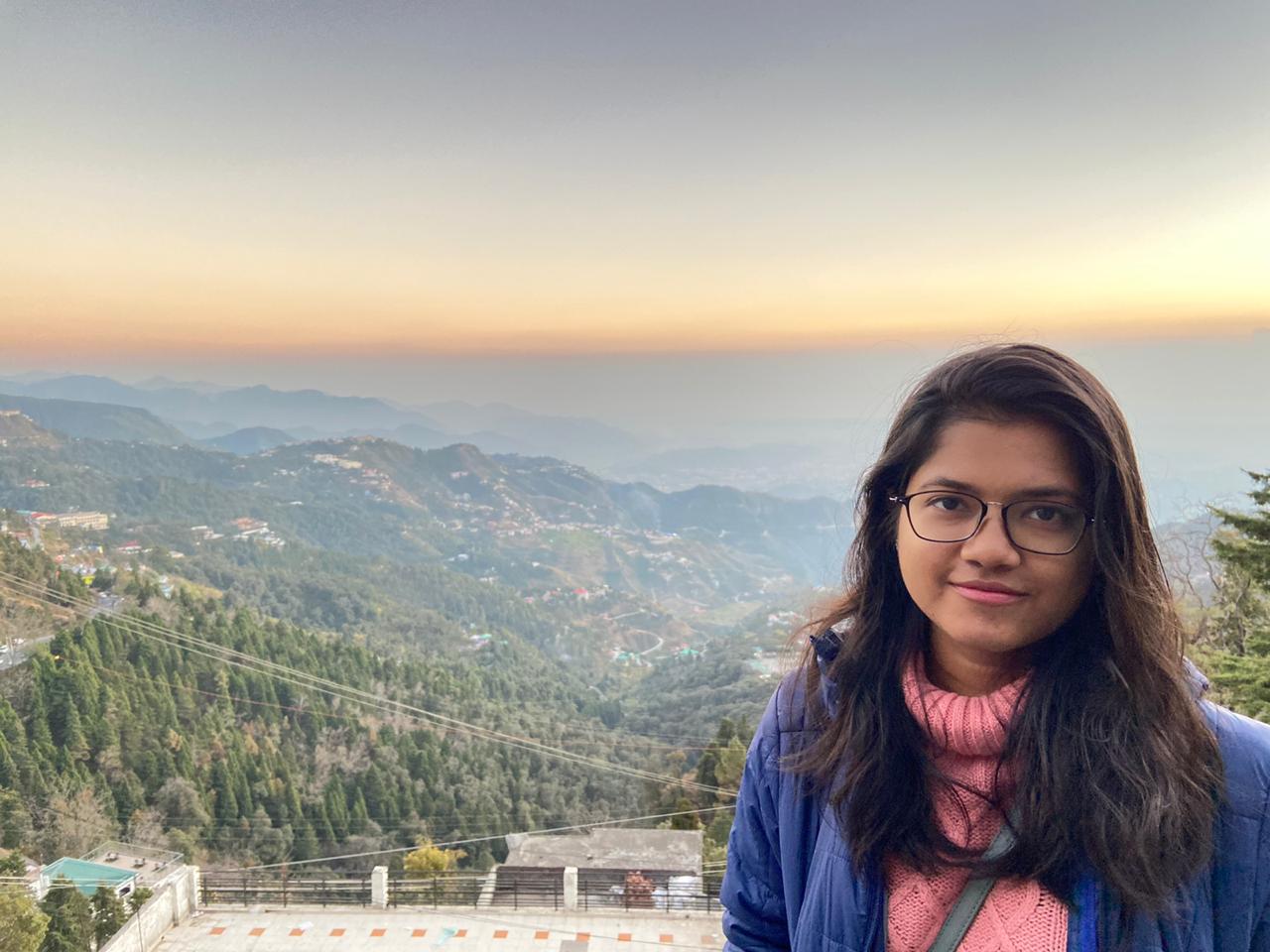Attempting CSE? UPSC All India Rank 31 Shares 8 Critical Tips For The Last 4 Months
Odisha's Simi Karan cracked the Union Public Service Commission (UPSC) Civil Service Examination (CSE) in 2019 with an All India Rank of 31. She shares strategies and tips for aspirants.

Meet Simi Karan who cracked the Union Public Service Commission (UPSC) Civil Services Exam (CSE) in her first attempt and secured an All India Rank of 31 at the age of 22. Originally from Odisha, Simi spent her growing up years in Bhilai, Chhattisgarh, where she studied at Delhi Public School.
She went on to pursue a degree in Electrical Engineering from Indian Institute of Technology (IIT) Bombay and graduated in 2019. It was the same year that Simi appeared for the UPSC examination as well. Speaking to The Better India, she says, “In my second year of college, I had attended a Public Policy boot camp conducted by Vision India Foundation at Sonipat where for the first time I had a chance to interact with bureaucrats, academicians, and members of various think tanks. It was a chance encounter with IAS Anil Swarup that left me rather fascinated about the services.”
“While I had always wanted to appear for the CSE, it was a technical internship in Japan after my third year, which nudged me in this direction. I felt I needed more diversity in my job profile, and that a technical job might not have suited me,” she says. She also adds that it was her father’s advice to attempt the CSE exams as soon as possible.
In this article, Simi speaks about how to utilise the last four months before appearing for the CSE prelims.

Choose your fun
Since Simi was in her final year when she started preparing for the CSE, she says, the lure of various parties and get-togethers was very compelling. “I tried hard to stay away from these gatherings. While I did not completely isolate myself, I was very clear on where to draw the line,” she says. Her advice is to start at a slow pace, build a good momentum and carry on till the finish line. She adds that the years spent in college are as important for personality development and urges that one makes the best use of them.
Dedicated time to read newspaper
Simi would spend close to 45 minutes each day reading the newspaper. She says, “I would not make extensive notes while reading the newspaper since I was reading the monthly magazines and a lot of the news would be repeated in them.” However, when she came across any interesting phrase, examples, or case studies she would ensure that she made a note of it to refer to later.
Making use of technology
One of Simi’s constant companions when she was preparing was the Evernote, a note making app. She says, “On the app, I had divided my notes into various sub-heads — GS1, 2, 3, 4 and even further into sub-topics like history, geography etc. I followed the syllabus to the ‘T’ when making my notes.” Even when it comes to reading newspapers, Simi says that reading an e-newspaper made it easier since the layout made it very accessible and all the topics were well laid out.
Learning on the go
Social media sites like Facebook (FB) can also be useful for aspirants who are preparing. Adding to this, Simi says, “I used to study-on-the-go, reading newspapers and articles off my FB feed. I ensured that I followed several relevant newspaper pages and would often go through the articles that would pop up on my feed.” Since Simi also used an app to make notes, it was easy for her to immediately make a note of a point in the app.
Make your notes ‘movement-friendly’

Using an app, which was linked to the laptop and the phone helped Simi during the time she spent in revision. “I never had to carry around books for revision and could pick up the phone anywhere and start my revision. This helped immensely and was also a great way to manage time,” she says.
Analyse the syllabus and previous years’ papers
“Be thorough with your syllabus and the previous year question papers. This is of utmost importance and I cannot emphasise this enough,” says Simi. Going through the previous years’ question papers will help aspirants understand which sections and points are relevant from the exam point of view. For example, under Polity — Fundamental Rights, Directive Principles of State Policy (DPSP), Preamble etc. are frequently asked topics. Also, Simi adds here that one should only rely on the official answer key and not fall for the many other versions that are available in the market.
Treat the syllabus as your bible
It is important that every small and big topic under the syllabus is studied and prepared. Simi says, “There are a few small topics which are generally missed out on when we study from the standard text-books. For those topics, it will be beneficial to do some research and make your own notes.” For instance, Representation of People’s Act is a topic that does not find mention in text books and one’s own research will help. “Do it for every small topic mentioned in the syllabus. Do not neglect them,” she emphasises.
Use your room wall as your whiteboard
In her hostel room, Simi had put up the syllabus, a map of India, and various different sticky notes depending on what she was studying. Making this kind of mind map would help her make a better visual connection. She says, “The sticky notes would usually consist of relevant and important points that I needed to remember. For example, details of various Articles of the Constitution and what they meant.”
(Edited by Yoshita Rao)

Similar Story

Ex-IRS Officer’s Free UPSC CSE Course Eliminates Need for Paid Coaching
An IRS officer-turned-educator, Ravi Kapoor has mentored thousands of UPSC aspirants for free. Taking upon his 10 years of bureaucratic experience and masters in clinical psychology, Ravi’s approach to UPSC mentorship has always kept mental fitness and motivation in focus.
Read more >
If you found our stories insightful, informative, or even just enjoyable, we invite you to consider making a voluntary payment to support the work we do at The Better India. Your contribution helps us continue producing quality content that educates, inspires, and drives positive change.
Choose one of the payment options below for your contribution-
By paying for the stories you value, you directly contribute to sustaining our efforts focused on making a difference in the world. Together, let's ensure that impactful stories continue to be told and shared, enriching lives and communities alike.
Thank you for your support. Here are some frequently asked questions you might find helpful to know why you are contributing?


This story made me
-
97
-
121
-
89
-
167












